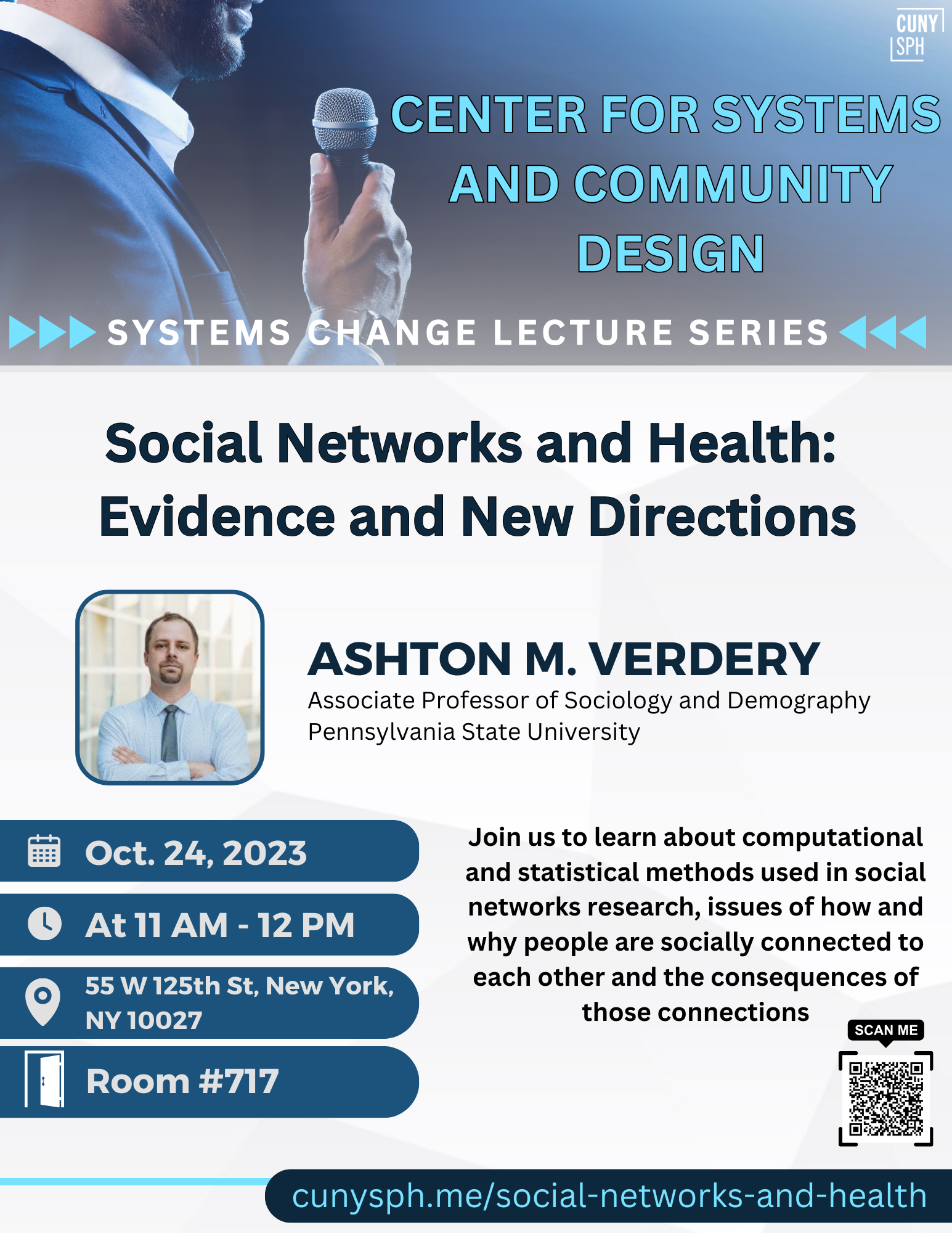This lecture discussed computational and statistical methods used in social networks research, issues of how and why people are socially connected to each other, and the consequences of those connections
About the speaker:
Dr. Verdery is a sociologist and demographer who employs computational and statistical methods to conduct research on social networks. He poses inquiries into the nature of social connections, exploring why and how people are interconnected and examining the consequences of these relationships. Within this broad field of study, a particular focus is placed on demographic processes, specifically the impact of population dynamics on family structures, kinship, and social networks, and how these networks, in turn, influence health and other population-related phenomena.
Presently, his work predominantly revolves around the subject of bereavement, studying the experiences of individuals following the loss of loved ones. Previous research has also emphasized the topic of migration, examining the network connections that migrants maintain with their places of origin after relocation, as well as the new connections they establish in their new destinations. Additionally, he expresses a keen interest in utilizing social networks as a foundation for surveying populations that are traditionally hard to reach, including migrants, individuals at high risk for sexually transmitted or blood-borne infections, and opioid users. Within this research area, he is actively developing and refining network-based sampling methods, with a special focus on respondent-driven sampling.
Current Research Projects:
Dr. Verdery is involved in various ongoing research collaborations. His primary current research project investigates how historical and projected changes in global population impact family and kinship networks. This work is closely related to his scholarship on bereavement, in which he aims to estimate the prevalence of different types of family deaths in various contexts and assess the associated health implications. Another area of research concentrates on transnational migrant networks and their influence on social integration. A third research line involves the expansion of tools for network sampling methods, particularly respondent-driven sampling, including the investigation of new sampling protocols, statistical estimators, and approaches for conducting multivariate analyses with non-traditional data. This last line of work encompasses projects aimed at gaining a better understanding of the heroin and opioid crisis in Pennsylvania and addressing racial disparities in kidney transplantation rates.
This lecture is brought to you by the CUNY SPH Center for Systems and Community Design.


